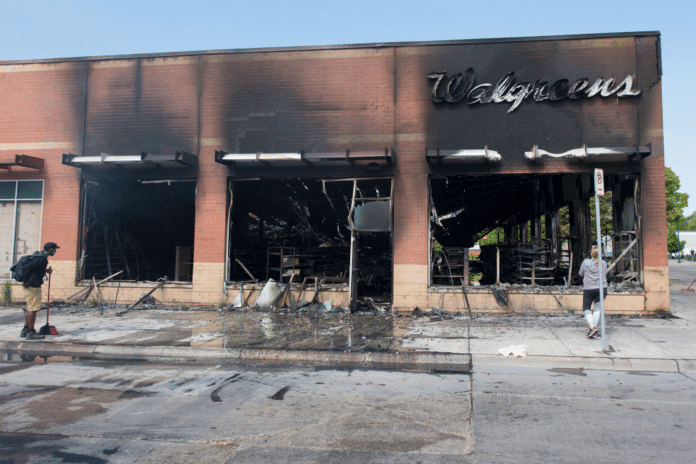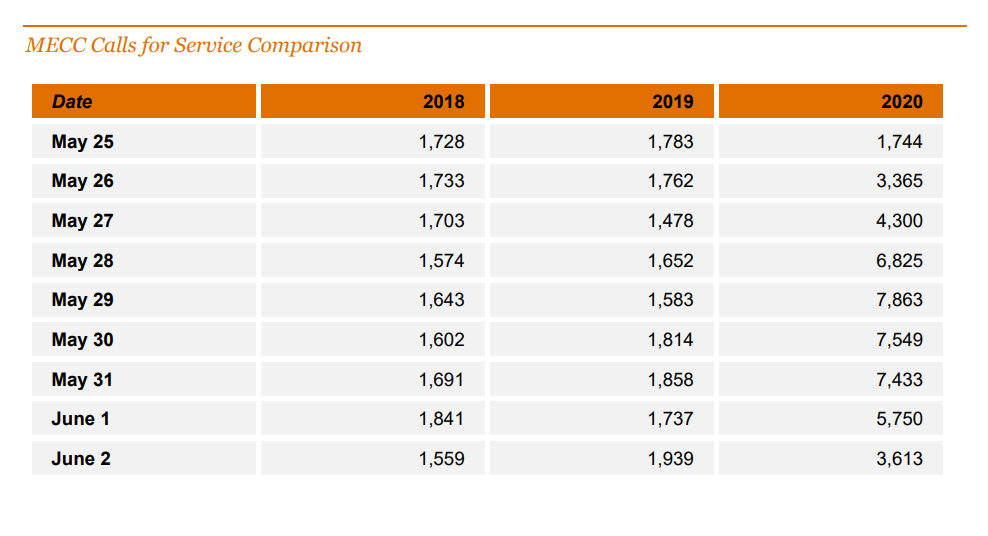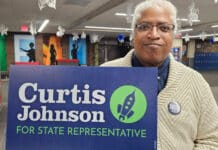
Minneapolis was receiving five times the average number of 911 calls at the height of the George Floyd riots in May 2020. This call volume grew so intense that it “overwhelmed the system,” according to a city report released this week.
Many have interpreted the report as a rebuke of city leadership, as it offers a page-by-page analysis of the many mistakes that were made in the 10 days following Floyd’s death.
One section of the report focused on the operations of the Minneapolis Emergency Communications Center (MECC), where workers answer 911 calls and communicate with first responders.
“The volume of calls during the protests and unrest overwhelmed the MECC, and a temporary service disruption occurred,” the report says.
The volume of calls became so overwhelming that “some individuals simply did not get through to a call taker or dispatcher.”
“It is impossible to capture the total number of calls made to the MECC, although we requested the received or answered call data to understand the increase,” the authors of the report explain.
“The available data reveals an increase in calls beginning on May 26 with a nearly 91-percent increase and steadily growing to a peak on May 29, when the MECC staff answered nearly five times the average number of incoming calls (7,863 calls) in the 24-hour period compared to the same dates for the previous two years,” they continue.
For comparison, on May 29, 2019, there were 1,583 calls for service. For eight consecutive days following Floyd’s death, the call center received well over 3,000 calls per day. At no point in 2018 or 2019 had the number of calls per day exceeded 2,000 for the same set of days.

And these numbers do not account for the “unspecified number of calls that could not be answered.”
Some of the calls were “obscene and abusive” calls from residents who were “expressing frustration over Floyd’s death.” In fact, MECC employees told the authors of the report that they received about 150 abusive phone calls each day during the riots.
“The MECC continued to receive these types of calls at the time of our assessment. The number of abusive calls also detracted from the efficiency of the MECC’s operations. We listened to call recordings and can attest to the grotesque, abusive and obscene statements that the call-takers and dispatchers heard as they struggled to keep up with the call volume and provide professional dispatching services,” the report says.
In other cases, police supervisors didn’t dispatch officers to certain calls “due to concerns regarding previous calls for service in which officers responded and were surrounded by aggressive crowds.”
The “after-action review” was conducted by an outside firm called Hillard Heintze at the city’s request.















